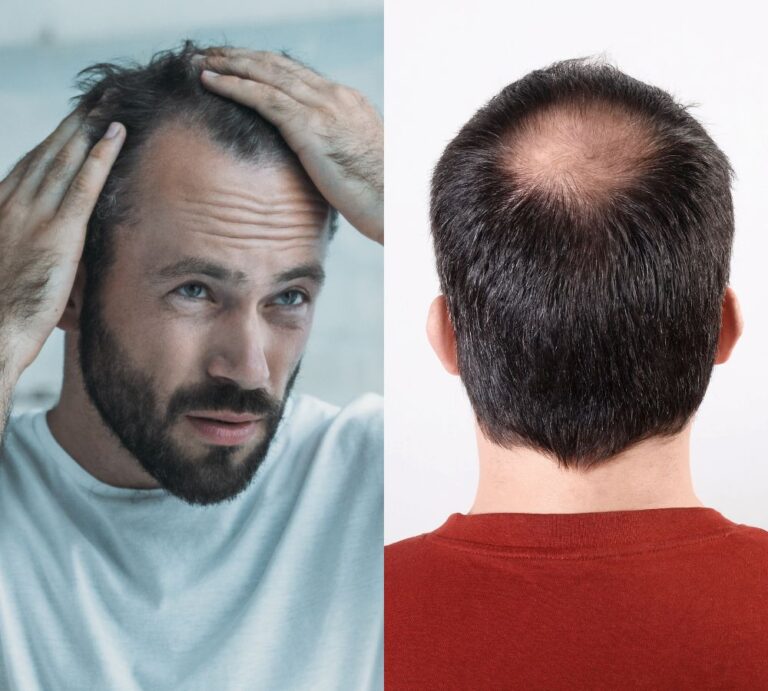Hair Loss
What are the causes for hair loss?
Hair loss can affect men and women of all ages. It has several causes, such as nutritional deficiencies, infectious conditions, autoimmune diseases, among others.
Medical consultation with a Dermatology specialist is essential to detect possible causes for this symptom, which is often associated with an underlying disease that is sometimes unknown to the patient.

Hair Loss Treatment
Hair loss treatment will be based on the diagnosis of the condition that is triggering hair loss. The cause may be a pathology of the hair itself, such as different types of alopecia, or systemic diseases that cause this symptom.
Hair treatment is individualized according to each patient and may consist of:
- Pharmacological measures;
- Behavioral measures;
- Hair mesotherapy;
- Hair PRP.
Baldness
What are the causes for baldness?
Baldness, also called androgenetic alopecia, is a genetic and hereditary condition that causes the progressive weakening of follicles. It is a very common condition that can affect up to 80% of men and 40% of women over 70 years of age.
Despite affecting men and women, the pattern of hair loss differs between these two populations. In men, there is usually the formation of “entrances” and “crowns”, with partial or total loss of hair in these areas. In women, this loss is usually diffuse, so that patients notice that their scalp “is more visible” when they look in the mirror.
It is very important that the consultation is carried out with a specialized Dermatology physician as many other alopecias can be confused with baldness. During the medical consultation, the dermatologist will perform a complete physical and dermoscopic examination of the scalp, skin and nails to diagnose this and other conditions.

Treatment for baldness
The key to successful treatment is early diagnosis. After confirming baldness, different approaches can be taken, such as drug treatment, hair mesotherapy and hair PRP.
Furthermore, a hair transplant may be indicated as a measure to restore density in certain areas of the scalp.
Other alopecias
Alopecia is a condition that results in hair loss. This loss can occur diffusely or localized, it can only affect the scalp or other parts of the body, such as the eyebrows, and it can be transitory or permanent.
Each type of alopecia has a different form of follicular involvement. Some can cause permanent loss of follicles, being classified as cicatricial alopecia. While others maintain follicular viability, they are classified as non-scarring alopecia.
Some examples of non-scarring alopecia are androgenetic alopecia, popularly called baldness, and alopecia areata, which usually causes “naked” areas on the scalp.
Treatments for other alopecias
The type of alopecia will influence its therapeutic management, generally based on medication. In some cases, hair mesotherapy with pharmacological active ingredients is indicated, as well as capillary PRP (Platelet Rich Plasma) as an adjuvant treatment. Depending on the type of alopecia, a hair transplant may be considered to restore the area of hair loss.
Schedule an appointment with a Living Clinic physician to learn more about the treatments available for your particular case.
We are on Av. da Boavista, in Porto!
Marque já a sua consulta!



